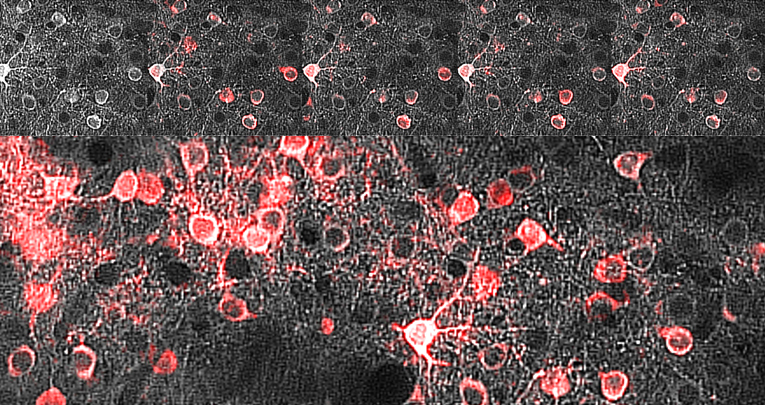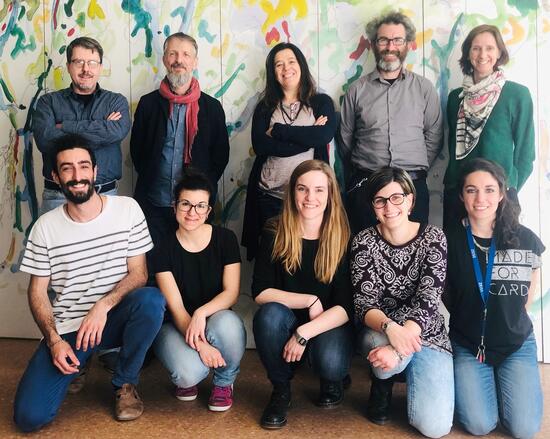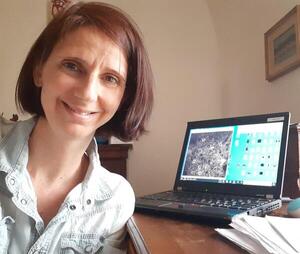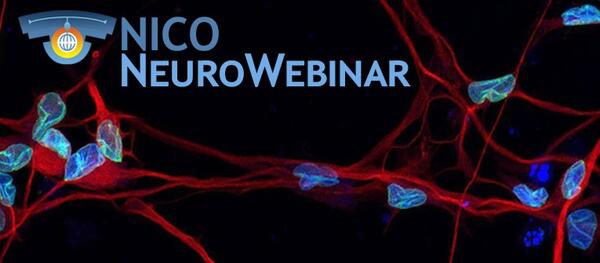
Human Frontier Science Program 2020
Unravelling the neural basis of sexual imprinting
Serena Bovetti awarded with a HFSP research grant
Serena Bovetti has received a highly competitive and prestigious international grant to study the neural basis of sexual imprinting. The grant is from the Human Frontier Science program (HFSP) an international program of research support, funding frontier research on complex mechanisms of living organisms.
Dr Serena Bovetti works with Prof. Paolo Peretto at the Department of Life Science and Systems Biology and at the Neuroscience Institute Cavalieri Ottolenghi – University of Turin , and she is part of a three-person team awarded a HFSP program grant of more than $1 million US over three years.
Adult Neurogenesis Group at NICO . Prof. Paolo Peretto (second from the left) and Dr. Bovetti (firs from the right)
Dr. Bovetti and her collaborators Dr. Sylvain Gigan ( Sorbonne Université, Ecole Normale Supérieure, Paris ) and Dr. Dustin Penn ( Konrad Lorenz Institute of Ethology , Veterinary Medicine University, Vienna) will use their combined expertise to investigate the neural mechanisms controlling sexual imprinting.
Sexual imprinting is a process of instinctive learning occurring during early postnatal development, through which many animal species acquire memories of the odor, vocalizations, and other characteristics of their parents or siblings, and then utilize this information to select their mates as adults.
Although sexual imprinting has long been known, almost nothing is known about the underlying neural mechanisms. The core aim of the project is thus to identify the brain circuits shaped during development by exposure to sensory cues from foster parents that form hardwired memories of conspecifics.
Twenty teams out of 549 submissions were awarded in a year-long selection process that involved more than 50 countries. Dr. Bovetti was the only researcher based at an Italian university to be selected.
Further information about the project can be found at: www.hfsp.org/awardees/newly-awarded









